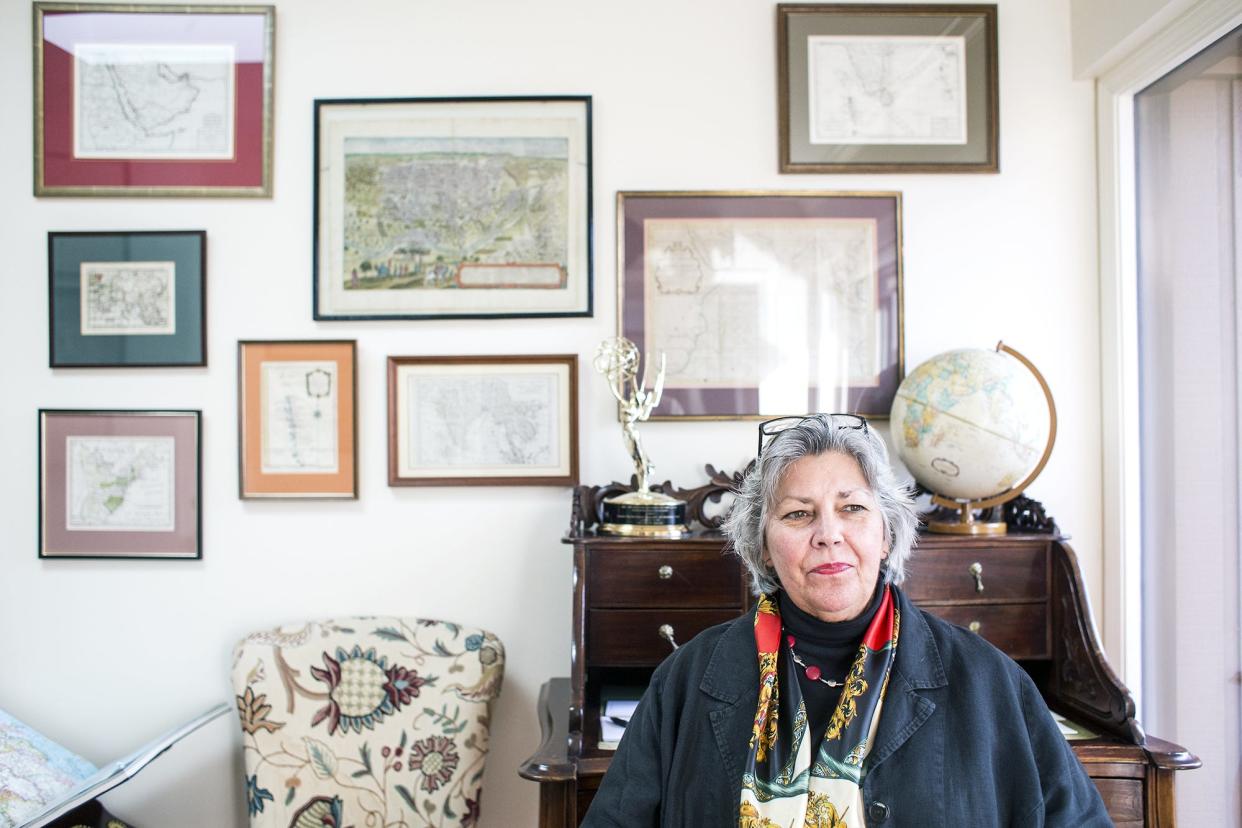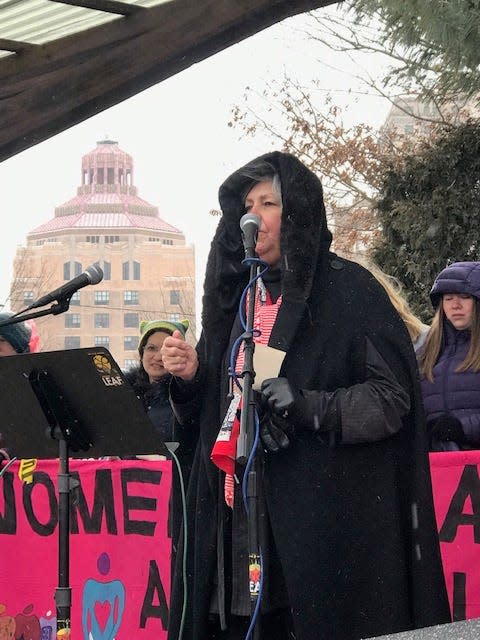Opinion: Women's History Month reminder: Equal rights for women still not legally ratified

- Oops!Something went wrong.Please try again later.
Women’s History Month has a lot going on nationally and globally. International Women’s Day, first celebrated in 1911, will be observed on March 8. Once again, focus is on equality for women, now “gender equality” for all. Does that mean this observance will make a difference for women of the whole world?
Lest we forget: Constitutional support for equal legal rights for all American citizens regardless of gender and sexual orientation is still not ratified in writing. Yet we are told that the constitutional rights for men should be understood to include women and all citizens, even if they weren’t included at the beginning or named in later amendments. Efforts to add an Equal Rights Amendment (ERA), first introduced in Congress a century ago in 1923, have still not succeeded.
Women could vote by the time I was born, and the special right seemed normal. My grandmothers, however, told me of their excitement on first being allowed to vote in their late 20s after the 19th Amendment for Women’s Vote passed in 1920. My mother, born two years later and raised by women who had fought for and cherished their voting rights, always shed tears of joy each time she went to vote.
More:Opinion: 'Glocal' diplomacy: A commencement call to practice citizen diplomacy
More:Opinion: Barbara Walters: Special memories of a mentor and broadcast legend
A woman’s courageous action helped launch the Civil Rights Movement, which in turn helped inspire the new Women’s Movement. In December 1955, Rosa Parks, an African-American woman in Alabama, refused to obey a busman’s order to vacate a row of seats so a white person could sit there. A few years later another female African-American leader here, Oralene Graves (now Dr. Oralene Anderson Graves Simmons), succeeded in 1961 to enroll at and integrate Mars Hill College in Madison County. Yet throughout most all the 1960s the University of North Carolina’s main Chapel Hill campus would not allow any women of any race, except for nursing students, to enroll there until junior year.
Today many of us now older women are trying to tell younger women how it once was when we were growing up. Most jobs and career fields and many leading universities were closed to us females of all races.
“Yes, my grandmother was telling me something similar recently. It seems so strange,” a female university student recently remarked after I described these realities before and even after the 1970s. She added, “It’s hard to imagine.”
Another young college student countered, “It’s still going on today-gender discrimination, all the time, in different, more subtle ways.”
More: Colton found her calling in world's trouble spots

In the 1970s, the new Women’s Liberation Movement erupted to start pushing forward some changes for women in education and the workplace. At that time many men and some women liked to dismiss that latest feminist movement as only something educated American or other Western women wanted — equal rights. I kept discovering realities to the contrary as I traveled and managed to find work around the world. Everywhere I met women at all levels of society who wanted equal rights.
Now in 2023 the United Nations is pushing a “gender equality” campaign for global women’s rights in a way like never before in its history. Still some talk of helping women of Afghanistan fight against transparent repression as if it’s only far away.
The U.S. National Strategy on Gender Equity and Equality was finalized in October 2021, and this week the White House Gender Policy Council released its first progress report. A number of other countries, including Canada and Mexico, have signed on to the global Feminist Foreign Policy to bring about gender equality.
More:Opinion: Former AG who silenced sexual assault survivors slated to become federal judge
Today, as over centuries, women are still worldwide calling for and working however they can manage to achieve equality. On a sub-freezing day on Sunday, Jan. 20, 2019, here in Asheville we had a Women’s Rights March. I was asked to speak at the rally, as I felt representing my late mother, Marie W. Colton, a North Carolina political leader who had fought unsuccessfully for the ratification of the ERA. Later the first female Speaker Pro Tempore in the N.C. House, she had died in September 2018 at nearly 96. Speaking in bitter, freezing wind, I remembered my mother and thought of all forbearing women before us as I with others called for equal rights.
Let us continue the work started by women before us to call for equal rights. Like so much in our world, gender equality, equality for women, LGBTQ people and most all people is still a work in progress. Let us not forget, and let’s work to have this March make a difference!
Elizabeth (Liz) Colton, author, diplomat, teacher and Emmy Award winning journalist, currently teaches diplomacy and the media worldwide for UNITAR. She serves as Diplomat and Journalist in Residence at Warren Wilson College.
This article originally appeared on Asheville Citizen Times: Asheville diplomat Liz Colton calls for equal rights for women

